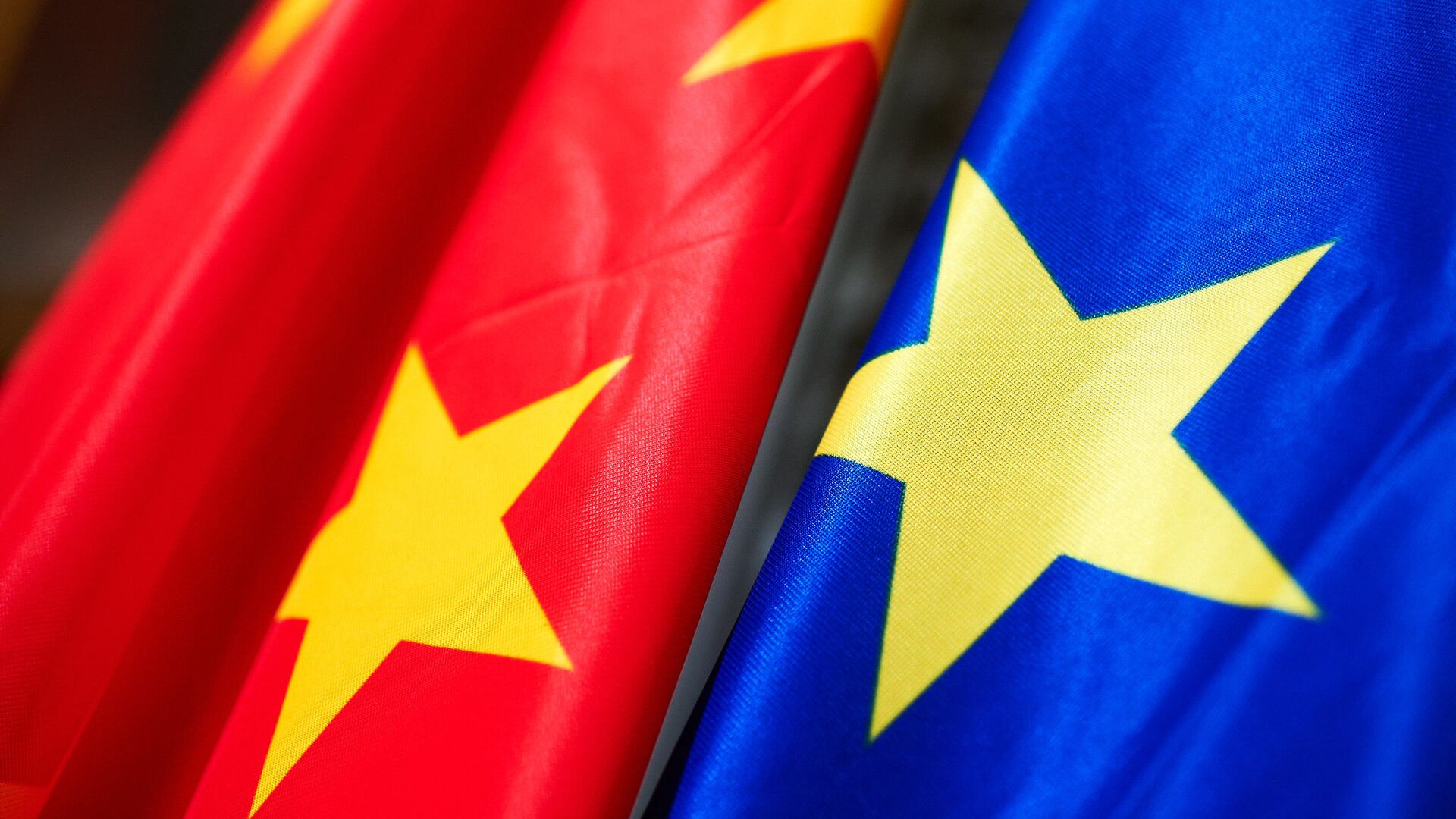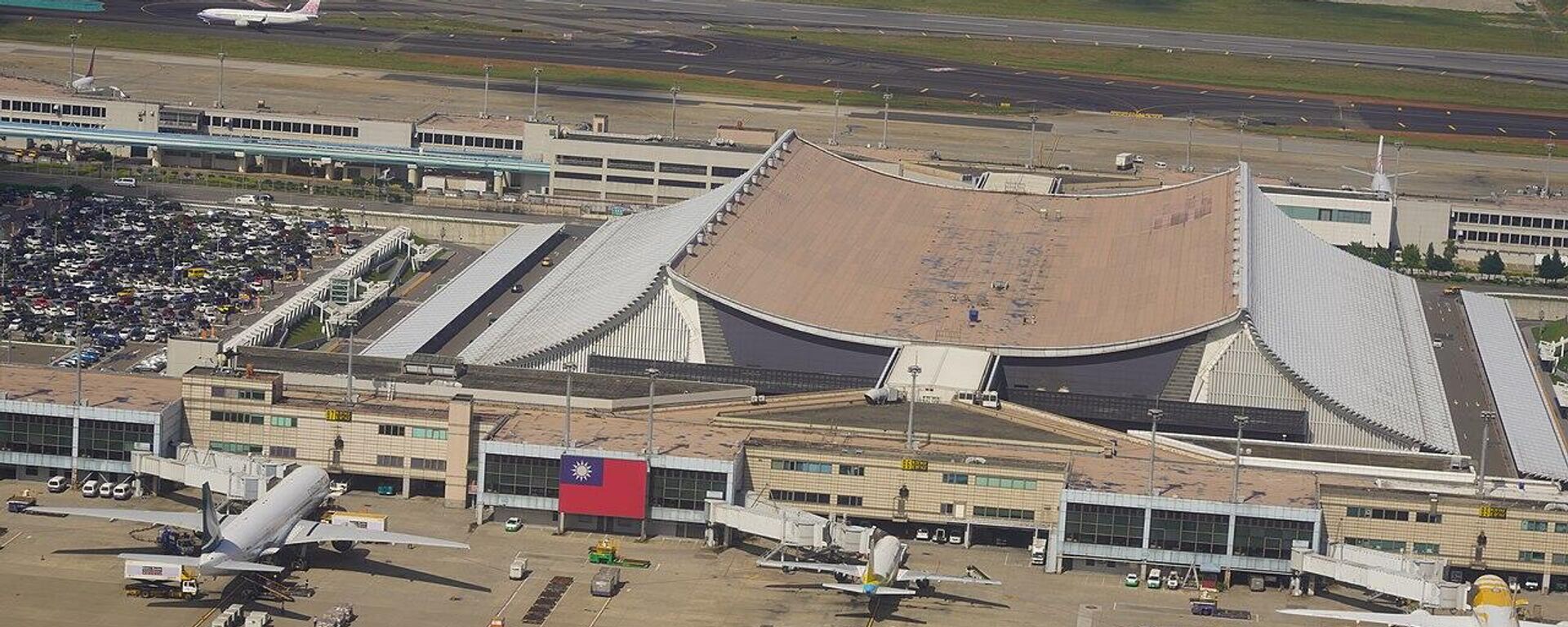EU Intel Chief Scraps Taiwan Trip After China Finds Out: Report
16:15 GMT 14.09.2022 (Updated: 12:45 GMT 19.06.2023)
Subscribe
The People’s Republic of China considers Taiwan an inseparable part of its territory, and has urged all countries which have relations with Beijing to refrain from official diplomatic contacts with authorities in Taipei, in accordance with the One China principle accepted by most of the international community.
European Union Intelligence and Situation Center (EUINTCEN) Director Jose Casimiro Morgado scrapped a planned visit to Taiwan after officials in Beijing found out about it, Politico has reported, citing two diplomats with information about the situation.
The PRC reportedly put successful pressure on Brussels to cancel the trip, which was planned for next month. China’s discovery of Mr. Morgado’s planned itinerary also caused consternation about whether Beijing got the info about the top-secret visit via electronic or human intelligence, according to the outlet.
The anonymous diplomats also expressed concerns over the fact that Brussels folded so quickly after Beijing’s reported intervention.
An EU official assured Politico that Mr. Morgado never intended to travel to Taiwan at all, and that he merely planned a telephone conversation with Taiwanese officials. Even these talks have reportedly been scrapped after China’s blustery reaction to US House Speaker Nancy Pelosi’s trip to Taiwan in early August, which sparked weeks of Chinese military exercises around the island.
Commenting on the Morgado scrapped visit story, a spokesperson from China’s mission to the EU stressed that Beijing “has consistently and firmly opposed any form of official exchanges between the Taiwan region and countries or organizations having diplomatic ties with China.”
Brussels has generally sought to avoid antagonizing China, with China-EU trade amounting to 696.1 billion euros in 2021, and the People’s Republic serving as the bloc’s number one trade and investment partner.
Late last year, Taiwanese Foreign Minister Joseph Wu visited Brussels, with a delegation of lawmakers from the European Parliament reciprocating with a trip to Taipei.
Lawmakers from individual EU countries also occasionally make their way to the island. Last week, five French lawmakers arrived in Taipei, where they promised to discuss regional security, technology, supply chains, and French support for the rogue island.
Also last week, a delegation of US lawmakers arrived in Taiwan for a two-day visit as part of a wider tour of the region.
On Tuesday, a delegation of four Taiwanese lawmakers traveled to Washington, DC for closed-door meetings with US officials.
China has repeatedly urged all countries which maintain ties with Beijing to refrain from any official contacts with Taiwanese officials, in accordance with the One-China principle – which recognizes that the PRC is the sole legitimate government of China, and that Taiwan (which formally calls itself the "Republic of China") is a part of the PRC.
Taiwan kicked off weeks of military drills in August over Pelosi’s tour. The House speaker, who is technically third in line for the US presidency in the event that something were to happen to President Joe Biden or Vice President Kamala Harris, traveled to the island at the beginning of last month to espouse the virtues of American democracy.
Nancy Pelosi in Taiwan with wise words from “Benjamin Franklin, our presidency” on “freedom and democracy on one thing, security here.” pic.twitter.com/mElfFUoF5C
— Max Blumenthal (@MaxBlumenthal) August 3, 2022
This week, US media reported that the Biden administration is considering fresh sanctions against China aimed at “discouraging” Beijing from invading Taiwan, and that Washington and Taipei are pressuring the EU to join in on the new restrictions.
Chinese authorities have made the reunification of Taiwan with the mainland a major policy priority, with the hope being that reintegration takes place peacefully and under the "One China – Two Systems" model currently applied to Hong Kong and Macau. This would theoretically allow Taipei to maintain substantial political and economic autonomy even as part of China.
Taiwan has enjoyed de facto independence from mainland China since 1949, when nationalist forces fled to the island after communist forces took the rest of the country in the Chinese Civil War. In the decades since, Beijing and Taipei have slowly established major economic and informal diplomatic links, with total trade reaching $312.4 billion in 2021 notwithstanding brewing geopolitical tensions.



